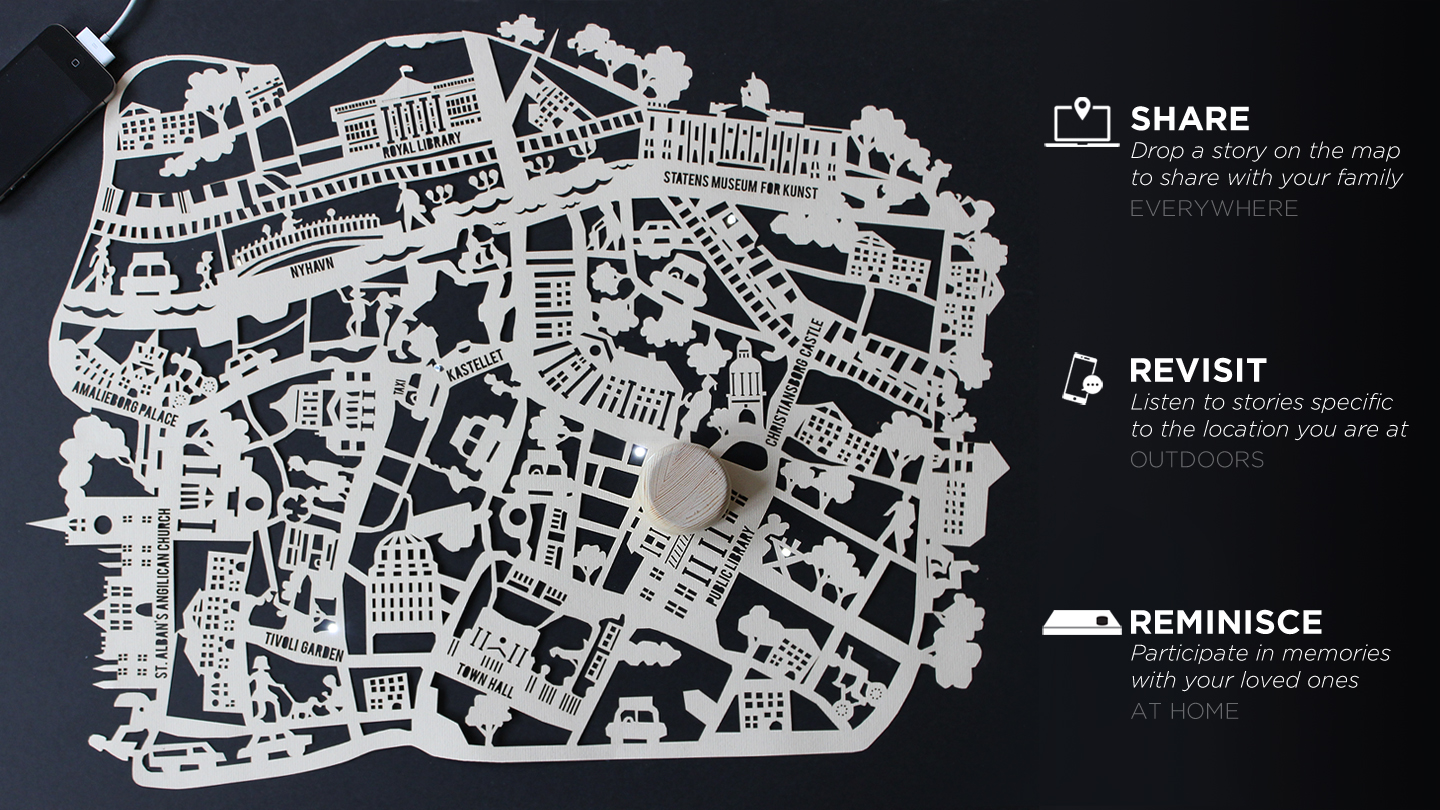Stanford Center of Longevity, 3rd prize I IxDA Awards 2014, Empowering category, Shortlist I DELTA Conference, 2013, Denmark
OVERVIEW: Memory Maps is designed for people with early stages of Alzheimer’s, facilitating them and their family to share stories and feel connected.
OUR FOCUS
Often it is not just the person affected by Alzheimer’s who feels lost and lonely but also their family. During our research, we identified that caregivers and family members feel the disease is taking away their loved one and slowly creating a void due to which they start to feel more distant. Memory Maps thereby hopes to push power back into the hands of both the patient and the family members to enjoy each moment when they are together or apart.
BACKGROUND
One in every three individuals is prone to the risk of Alzheimer’s. Often the path from early diagnosis to mildly severe stages takes a couple of years. However, there is a feeling of helplessness associated with the disease and people experience declining confidence levels. Memory Maps aims to support at such phases of life when things are slowly starting to deteriorate by focusing on the moment of ‘now’ that in turn creates rich experiences for the future.






reminder based systems; however with testing we realized that the core was not just managing daily activities but actually feeling confident and secure about the present.
PROCESS
Memory Maps is built through an iterative design process with feedback and testing from users at every step. Initial prototypes were built around issues such as way-finding and
The map uses was a customised map that lays stress on the character of a place rather than actual distance or scale. The system records GPS coordinates and maps corresponding coordinates on the physical device. A small, lightweight, portable object containing an RFID reader reads this data every time the device syncs itself. The physical device has lights below the map that illuminate to indicate locations where stories are stored.
CRAFT
While the digital platform explores the sense of being accompanied with loved ones, the physical device at home is a tangible conversation starter that enables playful interaction to aid as reminders even when the patient is alone. The digital platforms used are built upon existing comfort levels keeping only basic intuitive functions. Personalised sound feedback when hearing stories plays a crucial role for patients to help relate to a place and feel more independent.




conversations and hence feel more able and connected. Finally, it invites the patients and their loved ones to participate in each others memories, think about the present and enjoy that fleeting moment for everything that it has to offer. Our goal was not to bring back what’s gone but to find out what is still there and nourish and cherish that. Professional caregivers found this to be the core value of Memory Maps because it strengthened the outlook that is desired to deal with a daunting disease such as Alzheimer's.
IMPACT
Memory Maps secures a more optimistic future by strengthening their family ties and shared experiences. Revisiting memories over time provides a notion of ease and comfort when at that location and a sense of contentment and curiosity when conversing about it. There is a certain joy to embrace life as it is and Memory Maps facilitates that for everyone in contact with the disease. It helps patients stay mentally active throughout the recording and reminiscing process, thereby assisting a more self-reliant and independent life. It provides family members with a platform to share past experiences with them that spark
Presenting Memory Maps at Stanford Center of Longevity 2014, USA




